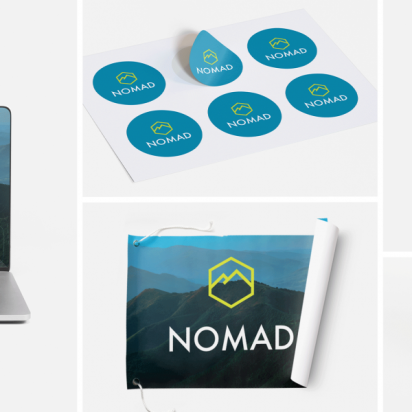Once they’ve embarked on their business journey, every entrepreneur picks up business hacks along the way. Some learn tips and tricks early on, while others stumble upon these strategies after some time. But one thing’s for sure, business owners are always learning. You can be in business for over 20 years and still be learning new things, especially when it comes to leveraging new technologies.
Starting a business isn’t easy, but getting advice from seasoned entrepreneurs makes it more straightforward. As an emerging entrepreneur, seek advice and mentorship from people in your industry as well as business owners at all stages of their careers. We’ve collected 20 small business hacks from successful entrepreneurs, some of whom we interviewed for our RealTalk series. Read on for their unique insights but remember, not every business hack will be right for your business.
Table of contents
- Set aside time for funding
- Start with your savings
- You don’t need much to start
- “Don’t worry about funding”
- “Embrace what you don’t know”
- “Plant seeds of content”
- “Content is fire; social media is gasoline.”
- “User experience is everything”
- Diversify your business card
- Prioritize in-person presence
- Start with a store
- Keep good company
- “Ask for the sale”
- Cultivate relationships
- Ask yourself, “What’s not working?”
- “Improve, change and grow your business”
- Experimentation is key
- “Hire out your weaknesses”
- Be persistent
- “Don’t over-analyze”
1. Set aside time for funding
Venture capitalist and author, Richard Harroch, says, “It’s almost always harder to raise capital than you thought it would be, and it always takes longer. So plan for that.” This quote actually contains two important pieces of advice — that raising capital isn’t an easy, straightforward process, so you need to give yourself more time than you thought you’d need for it, and more broadly, that this is true for most aspects of building a business. Don’t expect overnight results; be willing to invest the time and effort needed for a successful launch.
RealTalk interview clip featuring Karen Blackwell
2. Start with your savings
The best place to start is with what you already have in your savings account, says Kanda Chocolates founder Karen Blackwell. She told VistaPrint, “The initial funding for my business came from my own savings. I had worked in executive roles in corporate America, so I had stock, I had all these different [personal] funding sources to pull from to start my business. And so, I started with my own money, and then eventually I got some grants throughout the years to further my business.” So if you’re considering starting a business, you might have to use your savings initially before you find funding elsewhere.
3. You don’t need much to start
However, depending on your business model and plan, you probably don’t actually need much to get it up and running. Take inspiration from amarieacreates founder Ashley Addison, who told VistaPrint in a RealTalks interview, “My sister and I initially started our business by spending a couple hundred bucks on a Cricut, which is a cutting machine and just using the printer we already had.”
amarieacreates tote bag via VistaPrint
4. “Don’t worry about funding”
Not every business will even need funding. “Don’t worry about funding if you don’t need it,” says Noah Everett, founder of Pingly and Twitpic. “Today it’s cheaper to start a business than ever.” Setting up a website can cost very little or even nothing with a website builder like Vista x Wix. Take advantage of these and other free online tools, like logo makers and cloud storage to get your business up and running — you can always upgrade later.
5. “Embrace what you don’t know”
SPANX founder, Sara Blakely, advises entrepreneurs, “Embrace what you don’t know, especially in the beginning, because what you don’t know can become your greatest asset. It ensures that you will absolutely be doing things differently from everybody else.” This business hack guarantees that you’re bringing something fresh to your market instead of imitating what’s already there, consciously or subconsciously.
6. “Plant seeds of content”
Film producer and business executive, Amy Pascal, believes that “brands should think of themselves not as storytellers but as storybuilders.” Pascal’s top business hack, which she lives by, is to involve the community in building stories as opposed to just telling them: “We plant seeds of content and let our community build on it.”
7. “Content is fire; social media is gasoline.”
Once you have your content, the next stage in growing brand awareness is social media. This is what bestselling author, marketing expert and founder of Convince & Convert, Jay Baer, meant when he said “Content is fire; social media is gasoline.” For small businesses, social media is king and essential for creating a strong brand.
8. “User experience is everything”
To flourish in business, you need to understand the user and their needs. A top business hack from Twitter co-founder, Evan Williams, is to prioritize UX. “User experience is everything. It always has been, but it’s undervalued and underinvested in. If you don’t know user-centered design, study it. Hire people who know it. Obsess over it. Live and breathe it. Get your whole company on board.”
Source: business card via VistaPrint
9. Diversify your business card
Ashley Addison, founder of amarieacreates, told VistaPrint in a RealTalk interview that she uses “business cards as care cards and apparel cards. So every single cup, whether it’s glassware or a tumbler, gets a business card” with “all of my information on one side and the opposite side is how to care for your item for the best longevity.” This means Addison’s business cards aren’t “just a business card,” but a multi-purpose branding tool that considers the needs of both her customers and products.
10. Prioritize in-person presence
“For us, for the type of business that we run, that in-person presence is extremely important,” Tlali Pani co-founder, Fabiola Lara, told VistaPrint. “I think other businesses are able to have this online platform and this strictly online community, and it works very well for them. But for us, what we’ve realized is that if we want to grow, we really have to be out there and be sharing our story. We have to explain what our products are, how they’re made.” E-commerce is great, but if you offer a tangible product, nothing can replace physical, in-person presence. People want to touch your product, so give them that opportunity through pop-up events and selling in local stores.
VistaPrint interviewed the founders of Tlali Pani
Source: Kombucha trade show booth via VistaPrint
11. Start with a store
Alexandra Scholtz, founder of WildFlora, also expressed the importance of real-world assets in a RealTalk interview. “We grew our business very organically, starting with our location. We found a really beautiful storefront… and put a lot of intention into the store itself to make sure it was attractive, clean and beautiful.” So if your business needs a physical location, then make sure you consider its importance in the early stages.
12. Keep good company
“The fastest way to change yourself is to hang out with people who are already the way you want to be,” says LinkedIn co-founder, Reid Hoffman. Nobody is immune to being influenced, so surround yourself with fellow entrepreneurs and like-minded people you want to be influenced by and you will see the effects on your business.
13. “Ask for the sale”
“At the end of the day, it really is that, ask for the sale,” FRUITLOOTS co-founder David Cruz told VistaPrint. “When you’re networking and you’re introducing yourself to other people, tell them what you do, tell them how you can help their business and say, ‘Here’s my business card. If you’d like to do some gift boxes through FRUITLOOTS, I’ll give you a discount on your first order.’” Although it can feel awkward at first, asking for sales is how you make them, so be forward and don’t miss a single opportunity.
FRUITLOOTS postcards printed with VistaPrint
14. Cultivate relationships
“Networking is more about farming than it is about hunting. It’s about cultivating relationships,” says Ivan Misner, founder of BNI. This top business hack expresses the importance of nurturing business contacts to grow your small business.
15. Ask yourself, “What’s not working?”
Tlali Pani co-founder, Sabith Khan, advises entrepreneurs to consistently question how their business is going. He told VistaPrint his top business hack is “Really putting yourself to the grind and figuring out – okay, what parts of this is working, what’s not working?” As a small business owner, you’re constantly receiving data about your business in the form of sales, leads and social media engagement. Analyze this data to understand how your business is really doing and use it to work out your next steps.
Sabith Khan with VistaPrint product in a RealTalk interview
16. “Improve, change and grow your business”
“If you don’t feel uncomfortable, then you actually should revisit what it is that you’re doing,” Allan Nguyen told VistaPrint in a RealTalks interview. According to the FROOTLOOTS co-founder, “You should always want to improve and change and grow your business.” This is an example of a growth mindset, one of the most crucial small business hacks for any entrepreneur to cultivate. A growth mindset recognizes that effort and hard work are the path to progress and welcomes opportunities for them.
17. Experimentation is key
In a RealTalk interview, Karen Blackwell of Kanda Chocolate said, “Going into business is experimenting with everything and being willing to experiment with all those things. And for me, one of the things that I experimented with was all the relationships I could have.” This small business hack prioritizes the importance of experimentation in business, especially when it comes to relationships.
18. “Hire out your weaknesses”
“We don’t have strengths everywhere. We do have weaknesses. Hire out your weaknesses,” advises the founder of WildFlora. No one is perfect, even successful entrepreneurs. So VistaPrint ambassador Alexandra Scholtz’s top business hack is to work out what your weaknesses are and hire people who can handle these aspects of the business in your place.
WildFlora postcards printed with VistaPrint
19. Be persistent
When she was starting her chocolate business, Karen Blackwell “was looking for anyone who needed chocolate. I showed up at company meetings and I would wake up at three in the morning, get on the call and talk to them about tasting chocolate.” If this tells entrepreneurs anything, it’s that you have to be persistent in the early days to make those contacts and get the word out there.
20. “Don’t over-analyze”
Pinterest founder Ben Silbermann’s top business hack is, “Don’t take too much advice. Most people who have a lot of advice to give — with a few exceptions — generalize whatever they do. Don’t over-analyze everything. I myself have been guilty of overthinking problems. Just build things and find out if they work.” So many of the discoveries you’ll make will come through doing. Dive right in and let the lessons find you.
Tlali Pani business cards printed with VistaPrint
The branding power of business cards
You can find helpful business hacks about every aspect of running a business. One of the most valuable hacks, which is more of a non-negotiable, is having a clear brand identity. This includes a distinctive color palette and brand voice and of course, well-designed business cards.

